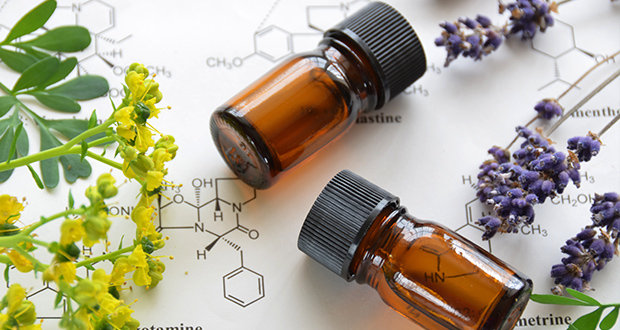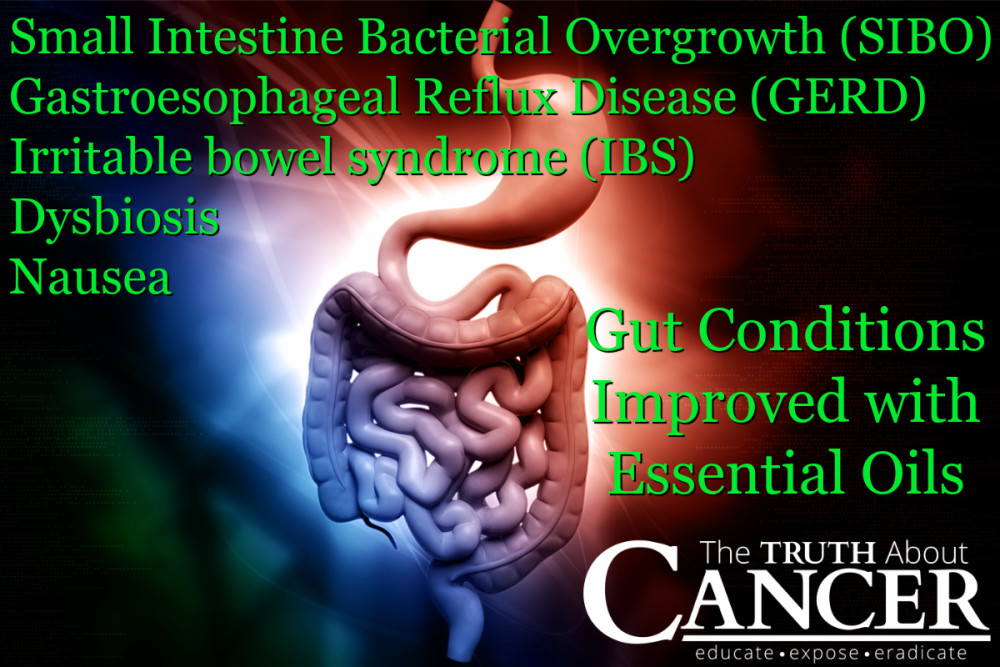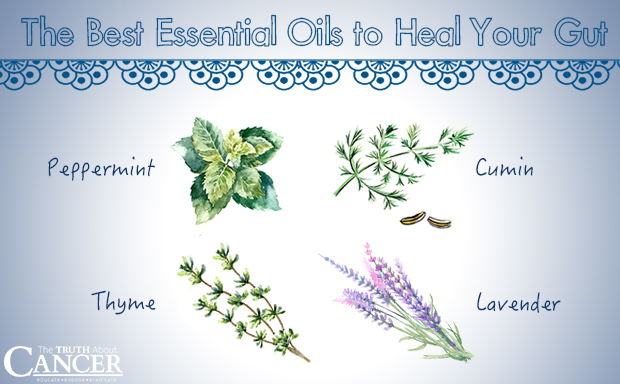At the start of the new year, everyone wants to eat better and get healthy. Everywhere you turn, someone is cutting a food here or adding a meal plan there. Cheer yourself on; nutrients are important! But have you given much thought to your gut – the part of your body that determines what to do with all those good choices?
Few people realize that the gut is deeply connected with the nervous system, as a team working the command post of the body. Whether or not you have obvious gut issues (like stomach upset or trouble in the restroom), don’t overlook your health and diet history, lifestyle, and other factors that may have damaged the gut. Knowing how to heal your gut is a cornerstone of an anti-cancer lifestyle.
Identifying Damage to the Gut
Some of the most recognizable markers of damage to the gut are nearly impossible to ignore. Discomfort, diarrhea and/or constipation, bloating, outright pain. Sometimes this is in response to stress or a specific food. You know something “sets if off” and (hopefully) you do what you can to avoid these triggers.
But the state of your gut health isn’t always obvious. Bacterial balance, damage to the lining, and other weakness in the gut can manifest in ways that we don’t automatically connect. You might think your gut is in great shape, but your immune system is not at its best. Or you have trouble concentrating, or you have trouble with mood swings and emotional upset.
For the most part, practices to heal your gut are good for you even if you’re in perfect health. These can include probiotics, a gentle diet of real foods, and minimizing stress. Most essential oils will fall into this category, as well.
If you’re concerned about the possibility of damage to your gut, consider talking with your health care provider to rule out any serious issues or complications.
Gut Healing Efforts
At the center of gut health is the balance of bacteria that occupies the intestinal tract. With bacterial organisms comprising about 1-3% of our body’s mass and outnumbering our own cells 10:1, there’s no getting around the importance of the bacterial balance. It’s vital to team up with the friendly bacteria and work against the bad to heal your gut.
The microbe life is such an integral part of wellness that researchers have described it as an organ within an organ. The resulting levels of health (or disease) is considered the “gut-brain axis,” intertwined with central nervous system functions from cognitive function to stress and hormonal responses.
It’s time to let go of the bacteria-free ideal that commercials and product labels have told us to pursue. Gut healing efforts should, first and foremost, consider the importance of our microscopic partners in wellness. This is one of many reasons to incorporate essential oils in the healing process. These digestive oils are typically safe for the microbial balance when used properly.
Key Gut Issues Affected by Essential Oils
Especially with antibacterial oils, it’s important to use oils appropriately in order to promote healing and avoid overuse. While not every gut health concern is best addressed with essential oils, there are some that certainly align well. Here are four issues that are treated well with essential oils.
- IBS
Our collective knowledge about irritable bowel syndrome (IBS) has grown substantially over the years. At one point, it was simply a catchall term or a lack of a diagnosis. Now, not only is it considered an official diagnosis for a specific condition, but estimates assume that more than 70% of those affected will never present it to their doctor. Lifestyle, diet, and medication are used for IBS management, and essential oils are up and coming as additional tools for coping. The most studied oil in this case is peppermint essential oil, usually in the form of enteric-coated capsules. A 2008 review of these studies found the oil to be just as effective as antispasmodic medication in many cases. - SIBO & Dysbiosis
A state of dysbiosis is the term for a tilted balance in the gut’s microbial life. If it escalates far enough, a condition like SIBO (Small Intestine Bacterial Overgrowth) can ensue. When this happens, colonic bacteria move into the small intestine – not where they belong! This kind of imbalance can be connected with common gut issues like IBS.Treatments for symptoms that damage beneficial bacteria would only further the problem. That’s why it’s so important to always consider the balance of gut health when treating other issues. When essential oils are able to relive the symptoms of overgrowth without damaging the good bacteria, they become a powerful tool for healing.In 2009, a study evaluated multiple essential oils including caraway, lavender, and bitter orange for their effects on gut dysbiosis while still protecting beneficial bacteria in the body. As researchers continue to dive deep with essential oils to determine ideal combinations and doses, we can enjoy their gentle yet effective nature. - GERD
Not strictly the gut but still part of digestive tract wellness, GERD is a substantial problem, as evidenced by the thousands of dollars spent on antacids each year. With the esophagus and stomach being first stops along the digestive tract, GERD is one of the first indications of digestive upset.The more severe form of acid reflux − GERD − can be an indication of either an excess or deficiency of stomach acid, among other causes.GERD is heavily affected by food choices, lifestyle habits, and bacterial exposure or colonization. Protective essential oils can help manage detrimental microbes and heal or preserve the lining of the stomach. Culinary preparations that include essential oils are excellent choices in this case, introducing the oil to the stomach alongside the diet. Ginger essential oils, for example, was indicated for antioxidant boosting and protective effects when paired with turmeric essential oil. The increased antioxidant levels helped to protect the wall of the stomach, which is important for damage prevention when GERD is an issue. - Nausea
Usually a symptom more than a standalone issue, nausea can be as mild as an annoying complication, to as strong as a debilitating condition. Thinking back to the last time you were nauseous, how much did scent affect how you felt?Inhaled essential oils take advantage of this direct line between scent and nausea, with multiple oils found to be effective for relief. Lemon essential oil, for example, tested well for individuals with morning sickness. Combinations of peppermint and ginger are usually effective, as well.
Using Essential Oils to Heal Your Gut
More than ever, we have an endless stream of information right at our fingertips, giving us access to information that can help us understand our bodies and ways to manage health. With that information comes a caution: that disease states are still serious conditions that should be approached with care and usually with the guidance of a physician.
The notation that natural products are “not intended to diagnose, treat, cure, or prevent any disease” may make us bristle, but it’s a reminder to take disease seriously. Approach essential oils with the care and respect that both they and your body deserve and seek guidance from qualified practitioners.
That being said, these essential oils have a growing record of efficacy and general safety and form an excellent base for efforts in healing the gut with essential oils.
- Cumin – Another oil used for IBS, cumin showed itself to be a powerful symptom reliever over the course of a four week trial. Cumin is not as commonly used as some of the other oils we’ve talked about today, which helps us to diversify the oils we use in healing efforts.
- Lavender – One of the most gentle and widely used oils, lavender is anti-inflammatory and a general healing oil. While there are certainly direct effects that lavender has on the gut, I love to talk about its effects on anxiety relief in relation to gut health. Could there be a connection between internal use of lavender calming the gut and therefore anxiety? It’s an age old chicken-and-egg scenario in which we all win!
- Thyme – Chemical components thymol and geraniol have been shown to be effective for SIBO while still retaining protective effects toward beneficial bacteria. Thyme can be used diluted into culinary and capsule preparations as a source of thymol, while geraniol can be found in many oils, including rose.
- Peppermint – Long known as a digestive aid in whole herb form, its essential oil properties are well-researched for IBS symptoms. Enteric-coated capsules are the primary mode of application for this remedy, and in one study it was paired with coriander and lemon balm for added benefits.
Article Summary
Practices to heal your gut are good for you even if you’re in perfect health. These can include probiotics, a gentle diet of real foods, minimizing stress, and most essential oils.
Gut healing efforts should consider the importance of our microscopic partners in wellness (our gut bacteria). This is one of many reasons to incorporate essential oils in the healing process as they are typically safe for the microbial balance when used properly.
4 gut issues that are treated well with essential oils include: IBS, SIBO & Dysbiosis, GERD, and Nausea.
These essential oils are generally safe and effective for healing the gut: Cumin, Lavender, Thyme, and Peppermint.




















WOW, This has opened my eyes about what I need to start doing right now. Just looking at all of the good that is being presented in this video set I watched with my Chiropractor. As soon as he saw your videos he invited a bunch of people over to watch this video’s to get people educated and to start educating everyone else… Thank you for all the hard work and I am directing everyone to go to your website and educate themselves.
What are the best brands of essential oil.
Hi Elizabeth! I would love to talk to you more about essential oils. Please email me at bestlifenow14@gmail.com. 🙂
I was told that you must be careful when taking essential oils internally as they can harm the kidneys. You should only take Organic essential oils, yet when used on the skin it is best to use along with a carrier oil like coconut oil or aloe or shea butter. What is your input on this and how do you know if the oils you buy are organic and safe to use both internally and externally?
How would you recommend ingesting them? In tea, a few drops in the mouth, or what?
Hi Rene,
It’s always recommended to ingest oils in a capsule or diluted in a teaspoon of coconut oil or some other carrier. 1-2 drops per day of any single oil or your favorite blend is a good start. 🙂
Hi Cheryl,
The idea that oils can harm the kidneys is debated. It’s simply not proven by the current research. With that said, it’s not advisable to take these crazy 10-15 drop “bombs” that you find on Pinterest and other sites. Taking 1-2 drops in a capsule or diluted in a carrier oil like coconut is a good start.
This is very helpful information but how does one use the essential oils? I have only used them as inhalents.
Wow thanks for posting this. I never thought about essential oils for gut health, even though I’ve been fixated on mending my gut for almost a year now. Cumin essential oil sounds like a great option to try out for me. Appreciated.
What about leaky gut? What is recommended?
I learned a lot reading this article. I’m wondering if I’d take 1-2 drops of the 4 oils with coconut oil 2 – 3 times a day, if I should do that 3 weeks and 1 week off or just do it all the time?
Thanks so much!
Any advice for diverticulitis? I have had 4 bouts of it
Oil of oregano. See Jini Patel Thompson book and YouTube “Listen to Your Gut”.
Wow!!!a real eye opener,i must admit I sure essential oils in my health care and personal hygiene!!! I don’t use deodorants I use frankincense myrrh in coconut oil,ive not tried the ones mentioned above but I’m certainly going to!!!!
Hi Dr Z. So with this protocol would you just add all of those oils to the capsules? And how long would I take them for? 30 Days?
Hi. I have SIBO and kill protocols have failed. HOW do i use these essential oils to heal and more important, where do i find FOOD GRADE or ingestable forms of these oils??? Thank you
Been using Therapeutic grade oil for over 20 years from the growers and distillers, a company with integrity and the oil can be ingested you can also get the PDR of essential oils that will guide you on which oils to use for what. You can message me. http://www.youngliving.orf/finak
Hi. So for example each one suggested for use with SIBO you would take 1 drop diluted in oil and water etc of each type and see how things go? Thank you
I just went to the AMEO website and they don’t list their products as organic. Should that be a concern? I’ve been researching for months on the various essential oil companies and I am more confused than ever. Please help us with some guidelines or other companies we can research. Thank you.
Hi Lori,
Did you figure out which essential oil company to purchase from?
Hi Lori. Ameo is good company. Certainly 100% organic.
WOW. very good information. Even better when I have a few essential oils from doretta at home – Will give the peppermint oil a try first and then the lavender if it does not help.
Do u ingest if so how much?
Which oil were you wanting to ingest? Some are not okay to ingest.
i have cancer what would be good for me to take for my gut and how often?
Hi Julian –
Thank you for reaching out to us about this.
I’m sorry to hear about your son – I will be sure to say a prayer for him!
Unfortunately, we are unable to give any kind of medical advice. But we do have articles on this topic on our website.
https://thetruthaboutcancer.com/gut-bacteria-cancer-treatments/
https://thetruthaboutcancer.com/gut-flora-cancer-link/
https://thetruthaboutcancer.com/prebiotics-and-probiotics/
https://thetruthaboutcancer.com/healthy-gut/
The best advice we can give you is to consult with one of the doctors we interviewed in the Global series.
Please note that we are not able to select an expert for you.
We’ve created a page with the experts’ contact info as it was available to us.
Here’s the link to the actual webpage:
http://thetruthaboutcancer.com/experts-info-sheet/
We do have one more resource you may be interested in. During our Live Event 2017 series, Dr. Patrick Quillin suggested contacting The Institute of Functional Medicine to locate a practitioner in your area.
If you are interested, here is the link to search for a Functional Medicine Practitioner in your area: https://www.ifm.org/find-a-practitioner/
Blessings and love!